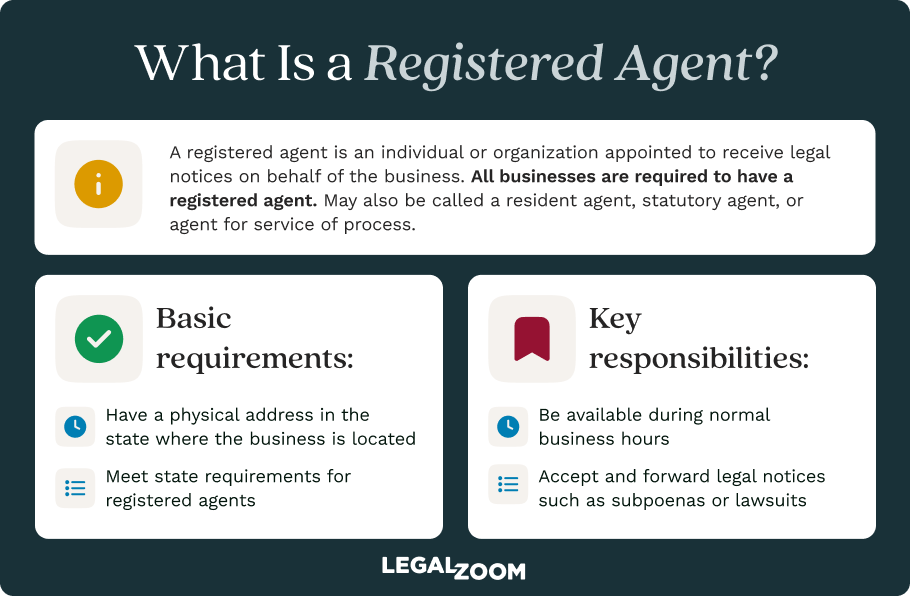Starting a limited liability company (LLC) in Washington State is a great way to take advantage of the state’s strong economic environment. LLC formation provides legal separation between your personal finances and your business, limiting your liability if your business faces lawsuits or debt.
Washington also has no personal income taxes, which can be a big advantage for LLC owners. But before you commit, it’s important to understand the benefits and drawbacks as you learn how to create an LLC in Washington State.
How to get a Washington State LLC in 9 steps
Washington State LLC registration is fairly straightforward, whether you’re a solo entrepreneur or planning to build a business with multiple partners.
Step 1: Name your Washington LLC
Names must comply with Washington’s naming requirements. The following are the most important requirements to keep in mind:
- Your business name must include the words limited liability company, limited liability co., LLC, or L.L.C.
- Your name must not contain “cooperative,” “partnership,” “corporation,” “incorporated,” or abbreviations of those words.
- The business name cannot contain certain restricted words without proper licensing or permits, including “bank,” “banking,” “banker,” “trust,” or combinations of “industrial,” “loan,” “building,” “savings,” “home,” “association,” or “society.”
The name must be different from existing businesses in the state. You can conduct a Washington State LLC search on the Washington Secretary of State's website to determine if a particular business name is in use. You can also use LegalZoom's free name lookup tool below.
Free Washington Business Name Check
Use our free name check tool to search the Washington Secretary of State database and see if your business name is available.
By clicking "Check Availability," I agree to LegalZoom's Terms of Use. This search is a preliminary check of state databases and does not include variations or trademarks. Results do not guarantee name availability or compliance with legal requirements.
If you aren’t ready to register your limited liability company but are concerned your name might be taken by someone else, you can reserve it for a small fee. In Washington, names may be reserved for up to 180 days by paying a $30 fee and submitting a name reservation form with the Secretary of State.
Step 2: Choose your registered agent
A registered agent is someone who will receive legal documents, government correspondence, tax forms, as well as notice of lawsuits on behalf of the LLC. Washington requires you to appoint a registered agent for your LLC. You can appoint yourself or an employee of your LLC, or use a registered agent service.

Many business owners choose a professional registered agent to avoid having their home or office address listed publicly. The registered agent must have an address in Washington and must be on-site and available to accept documents during regular business hours.
If you decide to change your registered agent, you can file a Change of Registered Agent form with the Washington Secretary of State. There is no fee. Keeping your registered agent information up to date is important to stay compliant with state regulations.
LegalZoom’s Registered Agent Services can also handle this administrative duty while shielding your privacy and saving you from unexpected visits from legal servers at work or home.
Step 3: Prepare and file a certificate of formation
The certificate of formation officially establishes your LLC by laying out basic information about it. In other states, this is known as the articles of organization. To prepare your certificate, you usually need the following information:
- Your LLC name and principal office address (can’t be a P.O. box).
- The name, address, phone number, email address, and signature of your registered agent.
- The duration or time period over which the LLC will exist, which may be “perpetual”—that is, ongoing until the business is dissolved. If your LLC exists for a purpose that will end at a specified date, you can enter that date, and the business will be administratively dissolved.
- An effective date of formation—either the “date of filing” or a later date not more than 90 days after the date of filing.
- A return address, in addition to the registered agent’s address, is where you want the certificate to be sent.
- The name, address, and signature of the person forming the LLC, called the executor.
To properly register your Washington LLC, you’ll file the certificate of formation with the Washington Secretary of State Corporate Commission. You can file online for $200, which is the fastest option, or submit your paperwork by mail for $180. Once you file your certificate, the Washington Secretary of State will review the filing. If the certificate is approved, the LLC becomes a legal business entity.
Step 4: Obtain a Washington business license
In Washington, limited liability companies that hire employees or pay state taxes are required to obtain a business license from the Washington Department of Revenue. You can apply for the business license registration after filing your certificate of formation.
Applications are accepted online or in person, and the fee is $50 if you’re opening a new business. Once you file this successfully, a Unified Business Identifier will be issued. This nine-digit number is required to file your annual report and other documents.
Certain industries, like healthcare, food service, and construction, may need city or state endorsements or permits in addition to the Unified Business Identifier. For example, restaurants will need health department permits, heavy industry may need zoning permits, and businesses selling alcohol or tobacco need special licenses.
You may also need local permits, depending on where you conduct business. Check with your city and county government offices to ensure you have all the necessary permits to legally operate your business.
With such complex licensing requirements to research, it can be hard to know where to start. LegalZoom can help you find the licenses, permits, and registrations you need to operate legally.
Step 5: File an initial report
After you start an LLC in Washington State, you are required to file an initial report (this is your LLC’s first annual report) with the Washington Secretary of State. This report is due within 120 days of formation. It confirms basic information about your LLC, such as the business address, registered agent, and the names of your LLC members or managers.
The filing fee for the initial report is $10, and you can submit it online or by mail. Failing to file this report on time can result in penalties, so make sure you mark this deadline on your calendar.
LegalZoom’s Annual Report Service can help you meet your state’s filing requirements, avoid tedious paperwork, and ensure you’re filing correctly.
Starting a business takes courage. LegalZoom makes sure the legal details don’t stand in your way, from the day you register until the day you retire.

Step 6: Receive a certificate from the state
You can file your Washington State LLC registration online or via mail. For faster results, it is highly recommended you file online, where you can also file the required initial report at the same time. Approval is usually within 2–3 days if filed online.
If approved, the Washington Secretary of State will send three LLC documents: 1) a congratulation letter; 2) Certification of Formation; and 3) certificate of formation with the initial report fulfilled (this is a confirmation that LLC formally exists after the formation documents are filed and approved).
You will receive these documents by email. A duplicate copy will also be mailed to your LLC's registered agent. Your Certification of Formation allows your LLC to obtain a federal Employer Identification Number (EIN), apply for business loans, sign contracts, and set up a business bank account.
Step 7: Create an operating agreement
Although Washington State doesn’t require LLCs to have an operating agreement, it’s a highly recommended component of your business. It outlines the way your LLC will conduct business and can help settle disputes and avoid litigation. Without an agreement in place, the courts make determinations based on state law, not necessarily what is in the best interest of the LLC owners.
The operating agreement can include, but is not limited to, the following:
- The purpose and duration of the LLC
- Name and address of the registered agent
- Information about the certificate of formation
- Members’ names and their contribution
- The way profits and losses will be divided
- What happens if a member leaves or joins the company
- Business entity and management structure
- Indemnification and liability clauses
Even if you’re the only owner, an LLC operating agreement can help you avoid future legal issues by clearly defining the rules of your business. You can use a Washington LLC operating agreement template, work with a lawyer to draft it, or use an online operating agreement service.
Step 8: Get an employer identification number and open a business bank account
The nine-digit employer identification number (EIN) identifies your Washington State LLC for federal tax purposes. This federal tax number is assigned by the Internal Revenue Service and is easy to obtain by mail or online. The purpose of an EIN is to assist with the following:
- File and manage federal and state taxes
- Open a business bank account
- Hire employees
Once you have your EIN, you’ll be able to pay federal taxes and open a business bank account. Having a separate bank account for your LLC helps keep your personal assets protected and simplifies your bookkeeping for tax purposes. Many banks will ask for your EIN, certificate of formation, and LLC operating agreement to set up an account.
Step 9: Register for state taxes
If your LLC sells goods, you’ll need to register for a sales tax permit with the Washington Department of Revenue. Sales tax also applies to some services, including construction, cleaning and repair, landscaping, and more. Certain businesses will also need to pay excise taxes, including those that sell petroleum products, tobacco products, real estate, and even syrup.
Washington State LLCs with employees need to register for employment taxes, such as the federal unemployment tax and withholding taxes. You can register to pay taxes online through the Department of Revenue’s My DOR portal.
In many other states, LLCs are considered pass-through entities, which means the revenue is taxed on the members’ personal income taxes. However, Washington doesn’t have income taxes. Instead, you’ll pay the business and occupation (B&O) tax, which is calculated based on your LLC’s gross income. When you register for your business license with the Department of Revenue, you’ll receive more information about this tax.
Building a business is enough work as it is. We'll help you start your LLC with confidence.

Next steps after forming your Washington LLC
Now you know how to start an LLC in Washington State—but there are a few additional steps to help set your business up for long-term success.
Register a domain name
Reserving a domain name ensures that your business has an online presence, even if you don't think you’ll need a webpage. At the very least, you should reserve the option of having one in the future by buying your domain name now. Choose a domain that matches or closely resembles your LLC name to make it easy for customers to find you.
Obtain a certificate of existence
A certificate of existence verifies that a business entity is in compliance with state regulations. It’s not required for day-to-day operations, but it can be useful when applying for loans, signing contracts, or expanding into other states. You can request it from the Washington Secretary of State for a $20 fee.
Consider a foreign LLC
If you plan to conduct business beyond Washington, you may need to register as a foreign LLC in other states. The process varies by state, but usually involves submitting a Certificate of Registration and paying a fee.
Purchase insurance for your business
Having the right business insurance can protect your LLC from financial losses due to lawsuits, accidents, or natural disasters. Common types of coverage include general liability insurance, professional liability insurance, and workers’ compensation if you have employees. Consult an insurance professional to figure out what you need.
Protect your name and logo with a trademark
A trademark legally protects your business name, logo, or slogan from being used by other companies. This can be especially important if you plan to expand your brand. You can file a trademark application with the U.S. Patent and Trademark Office to secure exclusive rights to your brand elements.
Or, you can let one of LegalZoom’s experienced trademark attorneys take care of everything so you don’t have to—anything from performing a trademark search to providing legal advice or preparing and filing your application for you.
Annual filing requirements for Washington State LLCs
In Washington, LLCs are required to file an annual report with the Secretary of State each year to maintain their good standing and avoid penalties. You must file it by the last day of the month you registered in, and the filing fee is $70. You must also make quarterly tax payments.
How much does it cost to form an LLC in Washington?
Because you’re required to have a state business license, starting an LLC in Washington is a little more expensive compared to other states. Here’s a breakdown of the costs involved:
- LLC formation cost: $200 for online filing of the certificate of formation ($180 by mail).
- Business license: $50 for most LLCs
- Registered agent services: Anywhere from $50–$300 per year (optional)
- Operating agreement: $99 and up (optional)
- EIN filing: Free
Starting a Washington LLC will generally cost between $250–$700 in the first year, depending on the services you select. You’ll also pay $70 per year when it’s time to file your annual report.
How to start your Washington State LLC with LegalZoom
Learning how to start an LLC in Washington State doesn’t have to be complicated. LegalZoom is here to simplify the process by guiding you through the steps, from naming your business to filing the certificate of formation. With our LLC formation service, you can be confident that your paperwork is completed accurately, saving you time and effort. Avoid the hassle of dealing with state filings and focus on building your business instead.
LegalZoom can help you file your state's formation paperwork for as little as $0 + state filing fees.

Start an LLC in Any State
FAQs about Washington LLCs
What are the benefits of registering an LLC in Washington State?
The main benefit of forming a limited liability company in Washington is personal asset protection, plus flexibility in managing your business. Washington also offers a business-friendly environment with no personal income tax.
What do you need to start an LLC in Washington State?
To start a limited liability company in Washington, you need a unique business name, a registered agent with a Washington address, and to file a certificate of formation with the Secretary of State. You'll also need to apply for a Washington business license and, depending on your industry, additional local permits or licenses.
How long does it take to get an LLC in WA?
If you file online, your application will typically be processed in about five days. Paper filings can take 4–6 weeks. If you need faster LLC formation, you can pay an additional $50 fee for expedited service.
Do LLCs pay taxes in Washington State?
While Washington has no personal income taxes, LLCs are still subject to the Business & Occupation (B&O) tax. This tax is based on gross income from business activities, rather than profits. LLCs that sell products or certain services or have employees may also need to pay sales tax and employment taxes. It’s a good idea to talk to a tax professional if these taxes apply to your business entity.
Rudri Bhatt Patel contributed to this article.




